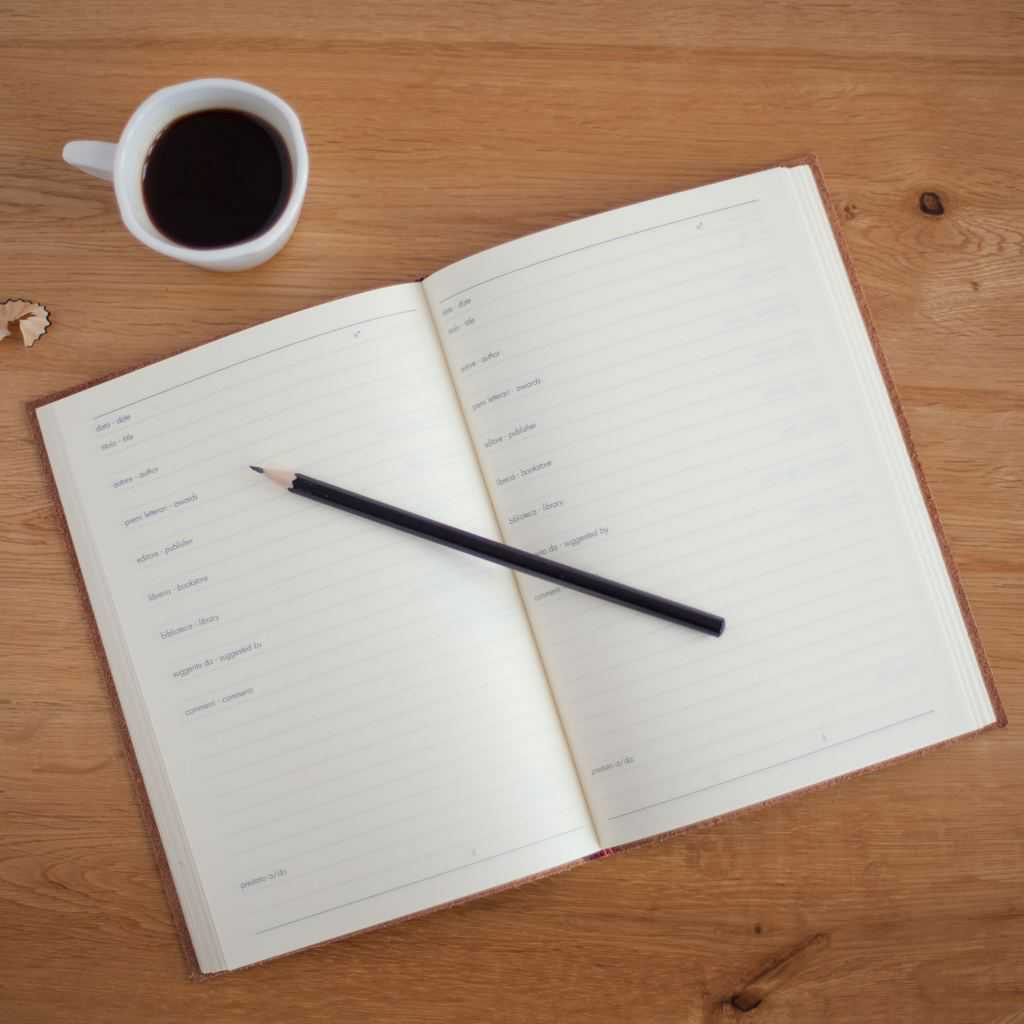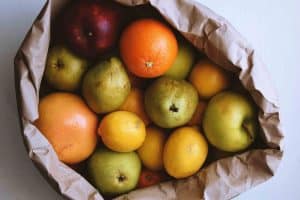- PhentermineLearn more about phentermine and how to get the most from your weight loss journey.
- ResourcesAdditional information and tools to help you make the most of your effort.
- AlternativesLearn more about the most popular weight loss medications and science-backed supplements
20 Tips to Keep a Weight Loss Journal
Published on December 9, 2024

Many people believe shedding weight is just about diet and exercise. Quickly, they discover losing those extra pounds and toning up involves more than just mindful eating and proper workouts.
However, researches have shown that most of the successes you record in your quest to lose weight is directly linked to your state of mind. A number of mental issues can make you lose sight of your diet and eat just anything that makes it to your table.
Factors such as lack of sleep, stress, strong emotions can make you overeat the wrong foods. However, you can get around all of this by using the weight loss journaling. Keeping a weight loss journal is one simple brain hack that will help you find out what is going on in your mind to help you stay on track with your weight loss program.
A good weight loss journal makes you accountable and more aware of the choices you make and the things that can make your weight loss plan fail. In this post, we will look at 20 tips to help you keep a weight loss journal.
1. Stay Positive
Nothing works if you start out with fear. You will most likely have a less pleasant experience if you go about your weight loss journal with dread. Before you begin, prepare your mind that it will certainly work out. Researches have shown that people who keep a weight loss journal for only one week have more than 80% chances of losing weight (1). This fact should be enough motivation to start your weight loss journal and stay on it until you achieve the weight you desire.
2. Make sure your method and goals match
Different people bring different journaling methods to weight loss. Never forget the fact that only journaling should not be your end goal. Focus on what you desire to achieve by tracking your weight loss efforts and recording all the efforts you make and the results you see.
Once you are sure of the result you want to see, choose a method that will match the goal you have chosen. However, the task of journaling your weight loss will be a whole lot easier when you get rid of the unimportant details. Your goals will determine if the journaling approach you have chosen will be a good fit or not. If you set a simple weight loss goal like adding more fruits and veggies to your diet, the pen and paper method to weight loss journaling might be best for you.
However, if the weight loss goals you have set requires a detailed breakdown of what you eat like recording how many calories and grams of fiber you eat, you may need some web-based apps to get your nutrient tracking right (4).
3. Plan your meals in advance
Planning your meals might sound a bit hard, but in reality, it is one effective way of making your food journaling easier (1). When you write down your meal plans ahead of time, it becomes easy to structure and predict your food intake. With a good meal, you can easily match up your log to your earlier plan. Also, planning ahead will help you stick to your diet plans when you know what you would be eating ahead of time.
4. Do not allow any setbacks stop you
One way to avoid setbacks is to plan your meals ahead of time and log your plans in your weight loss journal. Planning ahead of time will keep you from derailing from your original goals when you expect tracking to become a bit more challenging.
With this type of planning, you can be sure that no wedding, party, or vacation can make you take your eyes off your weight loss diet plans. It is important you tell yourself that missing a day won’t make much difference in your weight loss by writing down everything you can remember about the day you missed your diet plans. Record how allowing such mistakes to go on for too long can hinder your weight loss plans permanently.
You can also record a calorie increase for special events such as a family vacation and a return to your normal goals and portions when you return from your trip. With weight loss diet journaling apps like MyFitnessPal, logging in the details of what you eat becomes easier (2).
There are some newly verified food listings that take away the guesswork so you won’t need to second guess on the accuracy of the calorie and nutrient data of whatever food item you are adding.
5. Setting reminders will help you stay on track
Reminders help you stay on track with your weight loss food journaling. For instance, if you eat by 6 a.m in the morning, you can set a reminder at 6:22 am to remind you to log the breakfast before you leave the house in case you forget to do so. You may find these reminders and alerts a little bit annoying during the first few days, but with time, you will start looking forward to hearing the sound of the alarm going off.
The benefit of this is that it helps condition your mind to always remember to log in what you eat before you leave the house until it becomes a normal daily habit like taking your bath or brushing your teeth in the morning (2). You can ditch the reminders the moment logging your food intakes and every vital detail about them become a habit.
6. Make sure you contextualize your food
No matter the method you decide to use for your weight loss journaling, merely recording and looking may never be enough to give you the level of motivation needed to track your weight loss diets. Understanding how what you eat affects your weight gain and weight loss is one important part of the puzzle that can keep your curiosity up.
A good journal should include details like why you skipped your lunch. Putting down nutritional facts and data will never be enough to give you a complete picture (4). You need to make notes about everything ranging from your feelings on the day in review, what you ate, where you ate, your moods, etc. Capturing all vital details in your daily weight loss journal will help you reflect and analyze why you feel the way you feel or why your weight loss diet plans fail.
7. Keep your journal near where you sleep
Some people are good at forming new habits easily while some others go wherever the wind blows them. However, there is one particular thing every one of us does every single day: sleep. Ensuring you keep your journal next to your bed is one effective way to remember to write down whatever you ate during the day.
One other thing that makes this an effective journaling technique is that your bedtime is the time when you face the least distraction and the least hectic time of the day. What this means is that keeping your journal near your bed will prevent the “I’m too busy to write anything down now” excuse (3). Also, your bedtime is a great time to write down your recipe for your weight loss diet for the next day.
8. Write as you eat
If you find it challenging to write everything you eat during the day all at once, you can take the step by step approach. It is easier to keep a food journal by writing down what you ate right after a snack or meal. Also, writing down immediately after your meal may help you capture everything about the situation, emotions, and feelings surrounding each meal without missing anything (3).
9. Have a portable journal
Whether you are a before-bed or minute-by-minute journaler, make sure you make your journal as portable as possible. Having a portable journal you can take anywhere you go will help you stay consistent and prevent you from derailing from your weight loss plans. If you go for a very heavy journal, you can just say goodbye to your weight loss plans as that will open up the door for excuses (3). A simple lightweight journal will be easy to keep in your wallet or handbag.
10. Don’t miss the digital advantage
Now you can easily track your weight loss progress using several apps and tools. These apps function the same way the conventional weight loss journal does: you can document what you ate when you ate, and how much food you ate. According to a study by some Northwestern University professors, people who track their weight loss using mobile devices are more likely to lose weight than those who did not use mobile apps (5).
Even if you cannot carry your weight loss journal wherever you go, you can at least carry your smartphone in your pocket 24/7, which makes mobile apps the most convenient way to keep a weight loss journal.
11. Get weekly photo shoots
A nutrition clinic in Columbia recently published results of a study showing that those who take photos to track their weight loss progress weekly are more likely to lose weight than people who have a phobia for the lens and flashlight (6). You can add these pictures to your digital food log or diary to help you track how well you are doing with your weight loss plans. These pictures will both reward and motivate you by helping you see the changes happening in your body.
12. Be specific
Being specific is one of the most important aspects of maintaining an effective weight loss journaling habit. It is not enough to say you had a sandwich for lunch, make sure you note down everything contained in the sandwich from the calorie to the nutritional content (3).
Focus on the portion sizes, the time you ate, the environment where you ate, your emotions and feelings, before, during and after your meal. In the long run, this will help you make minor adjustments and interventions for a big change in your weight over time. Also, include what you drank and all vitals details about your drinks for that day.
13. Get emotional
Being emotional is an important part of being specific. Don’t just write about what you ate, also include how what you ate made you feel. Once you notice a repeating pattern of eating, like reaching for a bar of chocolate whenever you have an argument with your partner, you may try going for a walk or a run the next time such argument happens (6). Write down what makes you reach for that food you would rather not eat and the healthy alternative to reacting to that emotional upheaval.
14. Be honest
Don’t allow the guilt for eating the wrong food keep you from writing down what you ate. For instance, if you ate pizza for lunch today, be honest enough to record the food, feelings associated with eating it, the environment, nutritional content and how it will affect your weight loss plans (1).
Being honest may help you notice your eating trend, know the feelings associated with each food to enable you to take the right steps towards a sustainable weight loss. Feeling guilty about what you ate will only leave you overeating the wrong foods out of frustration. Write it down in all honesty and take steps to avoid falling into that eating error in the future.
15. Record your nutrient data
Your weight loss journal can never be complete without a comprehensive nutrient data for the foods and drinks you eat daily. In your nutrient data, make sure to include important details such as your portion sizes for each meal and food option as well as the nutritional components of what you eat.
You can get a small electronic weighing instrument to help you get an accurate portion size always or use your eyes to get an almost accurate estimate. Some foods come with the Nutritional Facts label and data to help you know the nutritional components of what you eat (4).
But whereby the food you purchase lacks the necessary data, you can use a nutrition data app or website to get all vital information such as fat, protein, calories, carbohydrates, and fiber content. Your daily nutrient data entry is easier done once per day instead of trying to do it little by little at different times of the day.
16. Record the times for your meal
You can try to write down when you start eating and when you finish eating. Keeping an accurate record of your meal times and the duration of your meals is one way to know when you are eating rather too fast. Both dieters and non-dieters eat rather too fast. Recording your mealtimes will also help you notice if you eat too often (2).
Some dieters think it is more helpful to eat at fixed times during the day as against eating all through the day. Eating frequently could be an indication that your meal is not balanced. When you eat too frequently, you stand the risk of gaining more weight or experiencing diet failures.
17. Record your eating environment
When you snack or eat a meal, you should record where you ate the meal. It is also important you record who you were with if you ate in the company of anyone. Such vital information will go a long way to help you eat right.
Record all vital events that happen when you eat. Take note of some facts like whether you ate while sitting in front of a computer and whether you ate at the dining room or kitchen. Note if you are always with the same set of people when you eat more than your normal ration. Do you eat too much when sitting in front of your TV set? Do you eat more when you eat a particular food?
When you take time to journal on your eating environment and accompanying circumstances, you will be able to identify situations that make you overeat and situations that make you eat less. You can then use the information to eat less irrespective of your location and prevailing situation.
18. Rate your level of hunger
Before each meal, take a few minutes to rate your hunger level before you eat. Your hunger rate can be on a scale of 1-5, with 1 indicating when you are not hungry and 5 indicating when you are most hungry (4). Make sure you jot down the hunger rate before recording what you ate.
Your hunger rate will help you discover you always eat even when you are not hungry. Reviewing your journal will help you see whether this factor applies to your eating habits or not. You can also discover you eat frequently because you often feel very hungry. If you find out you eat often because you are hungry, you can decide to include more hunger-curbing foods in your daily diets.
19. Record your emotions
Lastly, once you suspect you eat more in response to stress or emotions, it will help to record how you feel in your food journal as often as possible. It is important to take note of how you feel and what you feel, write them down both before and after eating. Recording what you feel and how you feel when you eat will help you understand the roles your emotions play in terms of how you eat and what you eat as well as how some foods affect your emotions.
You can record the particular situations that sparked your emotional eating (2). Recording these will help you understand the different situations that can lead to emotional eating. This understanding will help you develop new coping strategies to help you deal with the same situations when next they arise
20. Set a date with your journal
You can set a date with your journal like you would with your crush. Logging what you eat daily in your food journal will never be enough until you can take out time to sit with your journal and go over everything (4).
Meet with your journal at least once every week to reread what you have written down. Pay attention to the patterns, emotions, cravings, and more. Find areas where you can improve to further enhance your success with your weight loss efforts.
As there is no hard and fast rule to succeeding with weight loss journaling, you can at least take these tips to make your journaling more effective. Don’t forget the importance of maintaining a healthy exercise regimen and maintaining healthy habits to make your weight loss efforts produce more desirable results.
References
(1) https://www.nhlbi.nih.gov/health/educational/lose_wt/eat/diary.htm
(2) https://www.med.umich.edu/pfans/_pdf/hetm-2015/0115-smalltipstolosebig.pdf
(3) https://patienteducation.osumc.edu/Documents/LivingWellProgBk.pdf
(4) https://www.researchgate.net/publication/45167955_Weight_loss_strategies_that_really_work
(5) https://www.ncbi.nlm.nih.gov/pmc/articles/PMC4755274/
(6) https://homes.cs.washington.edu/~jfogarty/publications/chi2015-decaf.pdf


